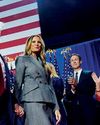
On the basis of indigenous ideas and policies, sources-resources, with the purpose of greater welfare and pride of the people, production and manufacturing of goods in the country and their use by the countrymen, is the basic spirit of Swadeshi.
Swami Dayanand 'Saraswati', one of the leading fathers of India's renaissance era, put forward before compatriots his clear and concrete views regarding the importance of Swadeshi and the respectful reconstruction of the country on its strength while rejecting the use of foreign goods. For this, along with awakening the national consciousness, he wished for Swarajya in accordance with the basic spirit of Indian philosophy; the basis of Swarajya should be indigenous resources and the countrymen its maker'. Swami Dayanand Saraswati' also worked throughout his life in this direction. Thoughts and actions related to his socio-religious reforms, cultural renaissance, ideas, and works in the field of education, and economic prosperity of India through indigenous sources were purely related to his vision of Swadeshi. Accordingly, similar thoughts and actions of Swami Vivekananda and other contemporary social reformers, thinkers, and nationalists can be seen and understood very well even today.
After the partition of Bengal by Curzon in the year 1905 AD, a nationwide effective Swadeshi Movement was started under the front-ranking leaders and nationalists like Bal Gangadhar Tilak, Lajpat Rai, Aurobindo Ghosh, and Rabindranath Tagore between the years 1905 and 1911 AD. The purpose of the Swadeshi Movement was to awaken the spirit of Swadeshi among the countrymen. On the basis of nationalist ideas, Indians were to be prepared for the production-manufacturing and use of goods in the country itself, so that the dependence on foreign goods could be minimised. At the same time, increasing self-reliance through this could also pave the way for the freedom of the nation from colonial rule.
This story is from the August 1 - 31, 2022 edition of BUSINESS ECONOMICS.
Start your 7-day Magzter GOLD free trial to access thousands of curated premium stories, and 9,000+ magazines and newspapers.
Already a subscriber ? Sign In
This story is from the August 1 - 31, 2022 edition of BUSINESS ECONOMICS.
Start your 7-day Magzter GOLD free trial to access thousands of curated premium stories, and 9,000+ magazines and newspapers.
Already a subscriber? Sign In

Bank of Baroda, Kolkata Zone organised Mega Kisan Melas in West Bengal
Bank of Baroda (BOB) organised Mega Kisan Mela at Konkalitala in Birbhum District of West Bengal on November 18, 2024 as a part of the 7th Edition of the Baroda Kisan Pakhwada (BKP).

Time-Bound Disposal of Cases to Expedite the Delivery of Justice and affordabe by all in India
The delay in the disposal of cases in Indian courts remains a significant hurdle to the nation's progress.

Dev Deepawali: A grand celebration of light, spirituality, and culture in Varanasi
The holy city of Varanasi, often regarded as India's spiritual and cultural heart, came alive with the splendor of Dev Deepawali on the sacred day of Kartik Purnima.

The life of Job 'Ye judge not the judgment of God' - Jesus Christ
The Holy Bible reveals through the life of Job how the Lord tests the righteous and that faith helps one to overcome life's adversities.

India has the highest potential for the garment industry, only a conducive government policy is required.
India's textile industry is poised for remarkable growth, with expectations to double its contribution to the GDP within the next six to seven years.

Global Public Debt may be worse than it appears, warns IMF
Global Public Debt Set to Exceed $100 Trillion, Warns IMF

The economic consequences of Trump's Presidency: A global perspective
One of the key economic factors contributing to the Democrats' loss in the US elections was the significant rise in inflation, which was initially triggered by the COVID-19 pandemic and exacerbated by the Russia-Ukraine war.

Challenges and Successes in West Bengal's Education Sector: A Comprehensive Overview
The education system in West Bengal, particularly in districts, villages, slums, and government institutions, reflects a blend of progress and ongoing challenges.

What India can expect from Trump's return
I may be too early to predict how Donald Trump's second term as president will impact the global oil market.

Stocks Surge Following Donald Trump's Election as 47th President of the USA
Stocks soared following the election of Donald Trump as the 47th President of the United States. Investors anticipated that the Information Technology (IT) sector would benefit from lower corporate taxes under the Republican regime, with IT stocks leading the rally.